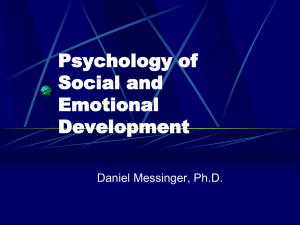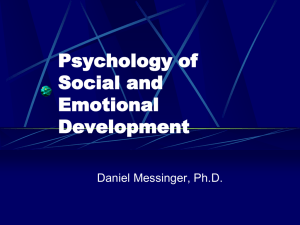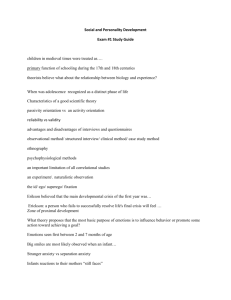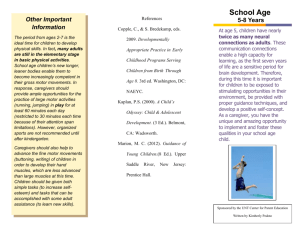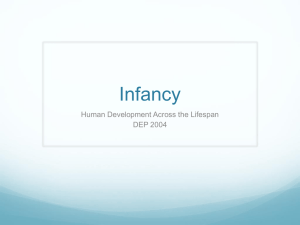Emotional Dev. Time
advertisement
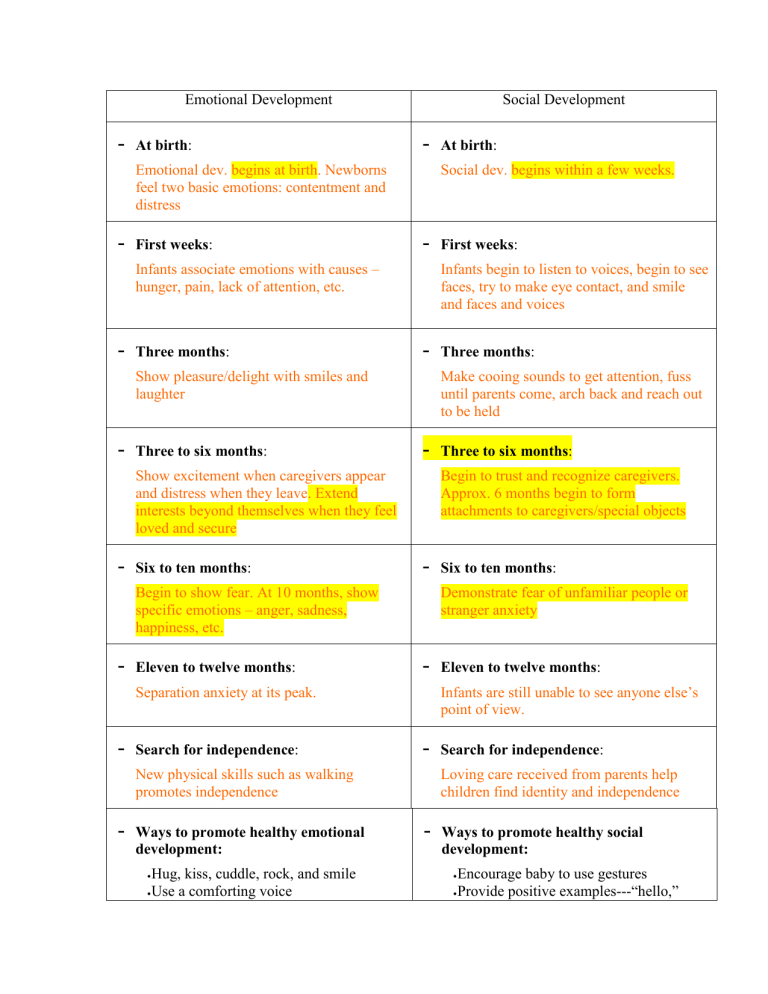
Emotional Development ­ At birth: Social Development ­ Emotional dev. begins at birth. Newborns feel two basic emotions: contentment and distress ­ First weeks: Social dev. begins within a few weeks. ­ Infants associate emotions with causes – hunger, pain, lack of attention, etc. ­ Three months: Three to six months: ­ Six to ten months: ­ Eleven to twelve months: ­ Search for independence: ­ Ways to promote healthy emotional development: Hug, kiss, cuddle, rock, and smile Use a comforting voice Eleven to twelve months: Infants are still unable to see anyone else’s point of view. ­ New physical skills such as walking promotes independence ­ Six to ten months: Demonstrate fear of unfamiliar people or stranger anxiety Separation anxiety at its peak. ­ Three to six months: Begin to trust and recognize caregivers. Approx. 6 months begin to form attachments to caregivers/special objects Begin to show fear. At 10 months, show specific emotions – anger, sadness, happiness, etc. ­ Three months: Make cooing sounds to get attention, fuss until parents come, arch back and reach out to be held Show excitement when caregivers appear and distress when they leave. Extend interests beyond themselves when they feel loved and secure ­ First weeks: Infants begin to listen to voices, begin to see faces, try to make eye contact, and smile and faces and voices Show pleasure/delight with smiles and laughter ­ At birth: Search for independence: Loving care received from parents help children find identity and independence ­ Ways to promote healthy social development: Encourage baby to use gestures Provide positive examples---“hello,” Keep up with attachment objects Set good examples of ways to express emotions Allow child to quiet self by sucking - Role of play: **Helps children learn both emotional and social skills “thank you,” and “bye-bye” Talk to infants in a pleasant voice Smile, show positive facial expressions Provide opportunities for other family members to interact with infant - Role of play:

